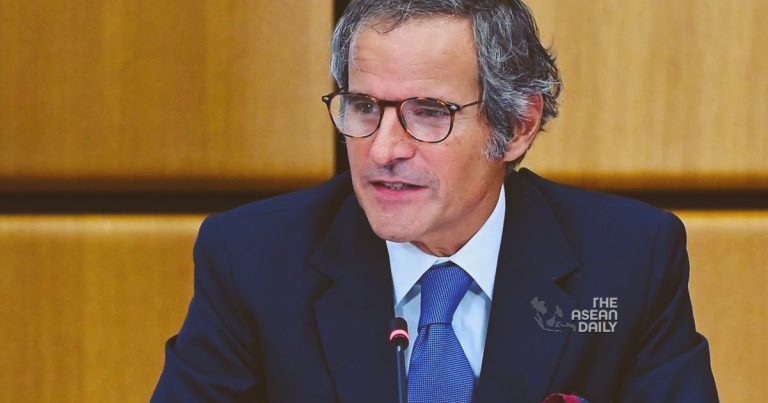17-9-2023 (VIENNA) Rafael Grossi, the head of the United Nations’ nuclear watchdog, strongly criticized Iran’s recent move to bar multiple inspectors assigned to the country, describing it as “disproportionate and unprecedented.” This action by Iran has raised concerns as it hinders the International Atomic Energy Agency’s (IAEA) ability to effectively oversee Tehran’s nuclear activities.
Iran’s decision to restrict the presence of IAEA inspectors is a response to a recent call led by the United States, Britain, France, and Germany at the IAEA’s Board of Governors. These countries called upon Iran to cooperate immediately with the IAEA on various issues, including providing explanations regarding uranium traces discovered at undisclosed sites.
Rafael Grossi expressed his disapproval of Iran’s actions, emphasizing that he believed the country had overreacted. In a statement, he stated, “I strongly condemn this disproportionate and unprecedented unilateral measure which affects the normal planning and conduct of agency verification activities in Iran and openly contradicts the cooperation that should exist between the agency and Iran.”
While Iran’s move, known as “de-designation” of inspectors, is permitted under the nuclear Non-Proliferation Treaty (NPT), which allows member states to veto inspectors assigned to visit their nuclear facilities, the IAEA argued that Iran’s decision went beyond customary practice. Iran had informed the IAEA that it would bar “several” inspectors without specifying the exact number.
The IAEA highlighted that these inspectors were highly experienced experts with unique knowledge in enrichment technology. Iran’s action effectively removed approximately one-third of the core group of the IAEA’s most experienced inspectors designated for Iran.
A diplomat based in Vienna revealed that Iran had de-designated all the French and German members of the IAEA inspection team, as there were already no US or British members.
The IAEA, while acknowledging that Iran’s move is technically permitted under the NPT Safeguards Agreement, stressed that Iran had exercised this right in a manner that severely impeded the agency’s ability to conduct effective inspections in the country.
Rafael Grossi called on the Iranian Government to reconsider its decision and return to a cooperative path with the IAEA. The US State Department had not issued an immediate response to the situation at the time of reporting.




